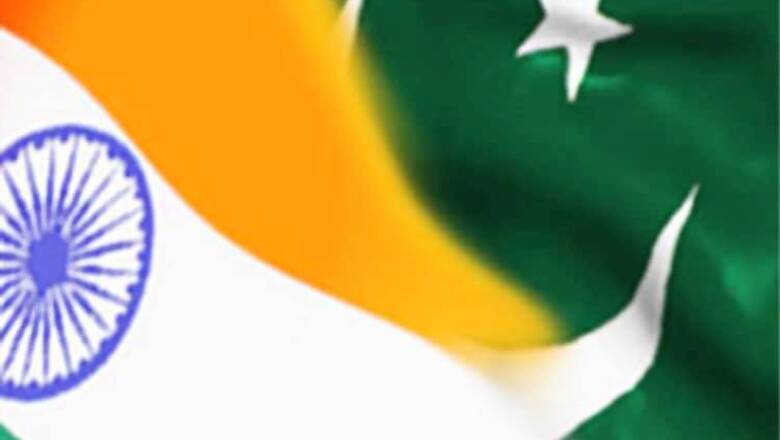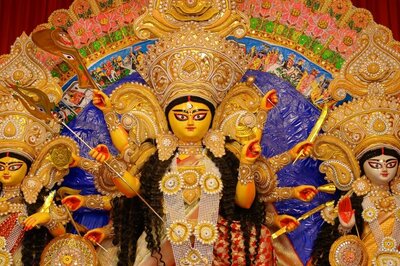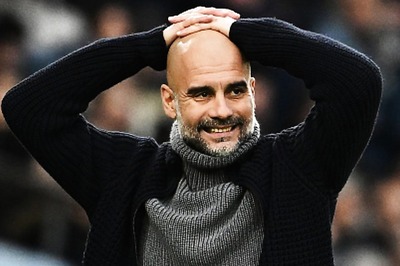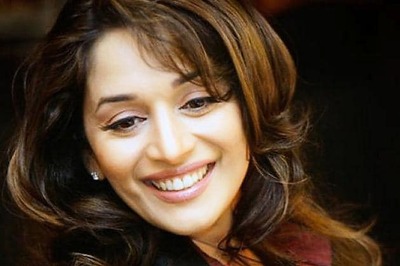
views
Question for India since the decision for talks with Pakistan has been taken, why now when that country is on a high. By all accounts, its economy is doing better than before (4.5% growth says the World Bank although with caveats); there’s renewed buzz in Washington about an “India style” nuclear deal despite its proliferation record and development of tactical nuclear weapons; and even the Russians are selling arms to Islamabad.
It’s also about India’s U-turn in 20 months on talks with Pakistan. The trigger appears to have been the NSA level talks in Bangkok recently. The cryptic statement from the MEA threw little light on what transpired at the meeting in Bangkok between Ajit Doval and Naseer Khan Janjua, merely stating … “They (NSAs) were guided by the vision of the two leaders for a peaceful stable and prosperous South Asia. Discussions covered peace and security, terrorism, Jammu and Kashmir, and other issues, including tranquility along the LoC. It was agreed to carry forward the constructive engagement.”
The fact that India now has a direct line to the Pakistani army is a positive, since the NSA is a retired general and reportedly has the ear of Gen Raheel Sharief, the chief. But it raises even more questions.
Ask Pakistan watcher retired Indian diplomats: “Did Pakistan go the ‘extra mile’ during the NSA talks in Bangkok? Frankly, nobody outside that charmed circle of about four or five people know. If there were assurances from Pakistan, were they more credible than those made earlier? Have they given us a document or something that will enable us to hold their feet to the fire if they renege? Otherwise, elements of that conversation remain deniable.”
Questions also about the “Comprehensive Bilateral Dialogue” that has now been given the go ahead. Sushma Swaraj described it thus: “What was being done as Composite Dialogue, and was later called the Resumed Dialogue, will now be called the Comprehensive Bilateral Dialogue.”
How different the new dialogue will be from the old Composite Dialogue? On the face of it, the new dialogue includes all those issues that were part of the composite dialogue such as terrorism, CBMs, J&K and so on. It also includes some new ones like religious tourism and humanitarian issues.
But the Composite Dialogue is discredited. Recall Swaraj’s own words in August: "In 1999, Atal ji went to Lahore to carry forward this composite dialogue from which the Lahore Declaration came up. But when he came back, he got Kargil and the talks could not move forward …. In 2008, before the analysis of the talks, 26/11 Mumbai attacks took place. So, the entire process stopped.”
There followed the “Resumed Dialogue”, all two rounds of it before even that was torpedoed by the beheading of Lance Naik Hemraj Singh in January 2013.
If it is a U-turn as it seems, government needs to explain why? What has changed in the course of the last 20 months to again vest confidence in Pakistan? In this age of dynamic social media and hyperactive news TV channels, there is a need to manage public perceptions. Some of the debates on Indian and Pakistani media has frankly been quite hyperbolic.
Is the latest round of dialogue a cynical exercise to keep the atmospherics positive? Is India doing this at the behest of some other country? If that is indeed so, it would reinforce the perception that we can be pushed around.
(Surya Gangadharan was part of a team of journalists who helped launch The New Paper in Singapore 1988-92. He was Singapore correspondent for Inter Press Service based in Rome. He began his career with PTI in 1981 and has since then worked in India Today, The Indian Express, NDTV& CNN-IBN. He currently edits a magazine ‘Parliamentarian’)




















Comments
0 comment